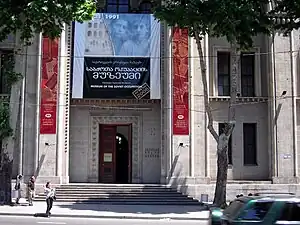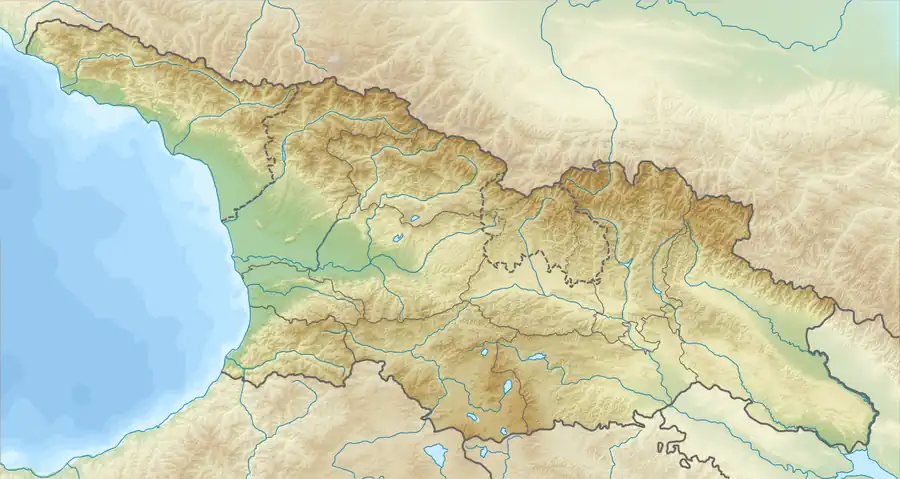Georgian National Museum
The Georgian National Museum (Georgian: საქართველოს ეროვნული მუზეუმი, romanized: sakartvelos erovnuli muzeumi) unifies several leading museums in Georgia. The museum was established within the framework of structural, institutional, and legal reforms aimed at modernizing the management of the institutions united within this network, and at coordinating research and educational activities. Since its formation on December 30, 2004, the Museum has been directed by professor David Lordkipanidze.[1]
| საქართველოს ეროვნული მუზეუმი | |
 | |
| Established | 2004 |
|---|---|
| Location | Georgia |
| Coordinates | 41°41′46″N 44°48′01″E |
| Website | www |
 Location of Georgian National Museum | |
The Georgian National Museum integrates the management of the following museums:
- Simon Janashia Museum of Georgia, Tbilisi
- Samtskhe-Javakheti History Museum, Akhaltsikhe
- Open Air Museum of Ethnography, Tbilisi
- Art Museum of Georgia, Tbilisi, and its branches
- Museum of the Soviet Occupation, Tbilisi
- Dmanisi Museum-Reserve of History and Archaeology, Dmanisi
- Vani Museum-Reserve of Archaeology, Vani
- Museum of History of Tbilisi, Tbilisi
- Museum of History and Ethnography of Svaneti, Mestia
- Institute of Palaeobiology, Tbilisi[2][3]
- Sighnaghi Museum, Sighnaghi
- Bolnisi Museum, in Bolnisi[4]
References
- Georgian National Museum: about Archived 2007-09-26 at the Wayback Machine Retrieved on December 16, 2007
- Manuvera (2014-09-09). "The Last Iranian Tiger in Georgia". kavehfarrokh.com. Retrieved 2017-05-19.
- Farrokh, K. (2015-03-21). "Turan Tiger Hunted in Central Asia in the 1930s". kavehfarrokh.com. Retrieved 2017-05-19.
- "Bolnisi Museum is open!". National Museum Website. Retrieved 31 May 2022.
- Museums in Georgia. Ministry of Culture, Monuments Protection and Sport. Retrieved on December 16, 2007.
This article is issued from Wikipedia. The text is licensed under Creative Commons - Attribution - Sharealike. Additional terms may apply for the media files.